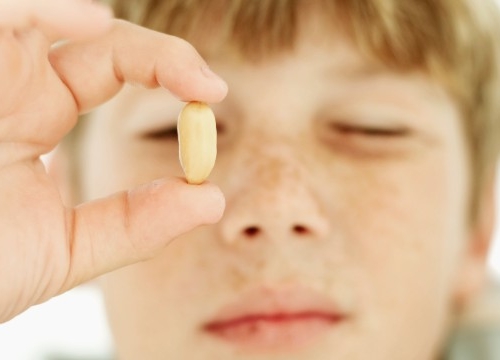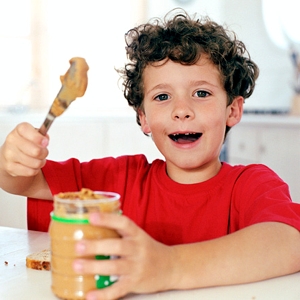I was pleasantly surprised to hear that at least one Canadian school has eased its previous ban on nuts in kids’ lunches. Such bans are standard policy in virtually all Western World schools, because a very small percentage of students are deathly allergic…

École Émilie Tremblay in Whitehorse, Northwest Territories, last week dropped its longstanding ban non peanuts and tree nuts last week. But not before lengthy consultation with parents. They also conducted intensive staff training to cope with any dangerous reaction a student could experience at lunch.
Nuts are still not allowed for kids in Kindergarten or grades 1 and 2. But there are no longer any restrictions for grades 3 and up.
Bans just ‘one tool’
Principal Marie-Héléne Gagné says the leadership at Trembley views bans as just one tool in a big boxful of available food safety measures.
Gagné told CBC News, her staff took an online training course about food allergies, and reviewed procedures on what to do when there’s an allergic reaction and how to use epinephrine auto-injectors. They also went over with students the importance of washing hands, not sharing food and cleaning desks and tables once lunch is done.
“Children that have allergies are already educated [about] that. They know how to behave to protect themselves. So now we’re trying to educate the rest of the population. Education rather than prohibition,” Gagné said.
Pushback inevitable
Morgan Klachefsky’s son Simon is severely allergic to nuts. All kinds of nuts. He almost dies the first time his Mom gave him a cashew at 18 months of age, introducing new foods.
“I’ve heard all the complaining about what an inconvenience [it is] that children have all these allergies, like ‘What can we even send in their lunch anymore?'” Klachefsky said. “As a mother of a child with life-threatening allergies, who could die from eating the wrong thing, […] I would hope that a school would do everything they could to protect kids.”
“We should not be allowing in the foods that are risking children’s lives, period.”
That’s the other side of the coin in this social transaction.
High-level recommendations
McMaster University professor Dr. Susan Waserman led an international committee that published a detailed series of recommendations about managing food allergies in schools and child care settings. The fruit of 5 years work.
The key recommendations they made included:
- Rigorous education about managing anaphylaxis (and regular refresher sessions).
- Renewed emphasis on hand-washing and cleaning.
- Schools stocking unassigned epinephrine auto-injectors.
“Food restriction has been institutionalized now for many years and these are not easy practices to change. But do I see it coming? Yes, in all likelihood it will,” said Waserman. “Do I anticipate resistance? Of course there’ll be. The anxiety among both the parents and the teachers is probably pretty fierce. So we’re expecting that there will be barriers, there will be challenges.”
My take
I have long advocated the early diagnosis and treatment of peanut and tree nut allergies in children. And the application of desensitization therapy to wean them off their potentially dangers sensitivities. In recent years, more and more family doctors and pediatricians have been slow to come around to that new way of thinking about nut allergies.
I see the shift in policy at École Émilie Tremblay as, possibly, hopefullt, the start of a sea change in the way society views – and deals with – allergies.
Wasserman has the last word: “”We all have the same aim in mind. We want to keep food-allergic children safe,” she said. “It’s the start of a discussion: What do schools do in the future regarding food-allergic children?”
~ Maggie J.

